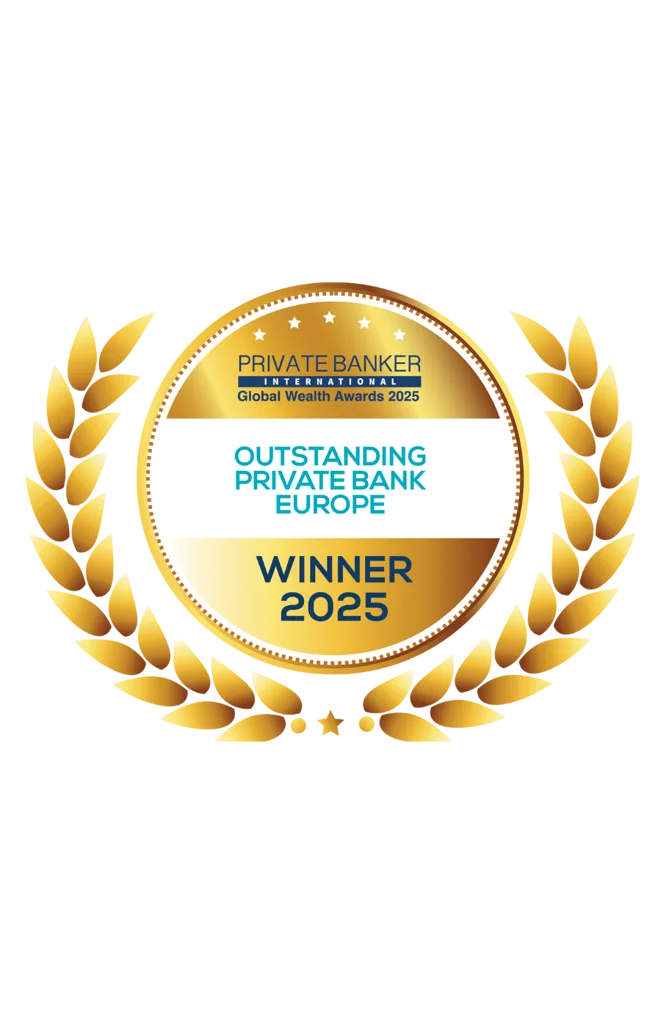What you need to know
- Active ownership influences company practices and behaviours with a view to preserving and enhancing long-term value.
- The main tools are engaging with company management to encourage change and voting at shareholder meetings. Research shows that active ownership is linked with improved company performance and reduced risks.
- We’re committed to active ownership. In 2023 we voted at 643 shareholder meetings and engaged with 565 companies. We hold a progressive voting records in the investment industry by supporting more than 45% of environmental and social shareholder proposals – which is double that of the industry average.
Section 1
Active ownership in the financial industry
What is active ownership?
Active ownership is when investors influence company practices and behaviours to preserve and enhance the value of assets, which will ultimately benefit businesses, investors, people and the planet. The most popular tools are voting and engagement.
How does voting work?
Voting involves casting ballots at shareholder meetings, which provide opportunities for investors to express their opinions on how companies are managed. Typically, the issues raised by management for a shareholder vote relate to board structure, audit, executive pay, and capital structure. Increasingly, shareholders are using their ability to propose resolutions to raise attention to environmental, social or governance issues and influence positive change at companies.
How does engagement work?
Engagement involves having active dialogue with company senior management on environmental, social and governance (ESG) issues or business strategy topics to manage risks and improve performance. Investors can use various communication channels to engage, such as in- person meetings, conference calls, letters, and emails.
Investors can engage individually or in collaboration with other investors. A collaborative approach can be particularly effective due to greater visibility, larger influence on company management, and improved efficiency from sharing knowledge and resources. Collaborative engagement can be coordinated on behalf of investors by a specialist stewardship service provider or through industry initiatives and platforms such as the Principles for Responsible Investment (PRI) or Climate Action 100+, the latter of which targets the top 170 largest greenhouse gas emitting companies.
What is the value of active ownership?
Active ownershop benefits investors and companies. It is a learning opportunity where companies can improve their practices, which can potentially result in better operating performance. Active ownership can enhance the investment process by uncovering valuable information to guide decisions. Through engagement, investors can encourage positive change, while also helping people and the planet.
Academic evidence supports this theory. A review of US public companies from 1999 to 2009 suggests successful engagements can boost investment returns by more than 7.0% (figure 1).1
Another study reviewed 1,712 engagements across 573 firms between 2005 and 2018, and found they reduced downside risk as measured by value-at-risk (VaR).2

What are the challenges for active ownership?
Communication and resource challenges can undermine the effectiveness of engagement. Language and cultural barriers, underdeveloped relationships, and lack of appropriate contacts can pose major obstacles. Research has found that face-to-face meetings and maintaining a dialogue with the company chair or secretary are consistent with engagement successes.3
Shareholder structure and the distribution of voting rights can be a barrier to raising the voice of investors and passing environmental and social resolutions. For example, at the last Meta annual general meeting, due to its dual share class structure, the CEO, Mark Zuckerberg controlled approximately almost 61% of the company’s total voting power despite only having a 13.5% economic stake in the company, making it impossible for a proposal to pass without his support.4
What are the recent trends in active ownership?
Active ownership has become a powerful tool for investors to address sustainability concerns and influence corporate behaviour. However, support for shareholder proposals is starting to fall. In 2021, on average, shareholder proposals had 36% support. In 2023, this decreased to 23%. Much of this can be attributed to a change by the U.S. Securities and Exchange Commission (SEC), which has revoked the right of companies to exclude shareholders from submitting proposals at company AGMs. Consequently, the volume of shareholder proposals has increased in recent years. Removing the barriers for shareholder proposals is positive for shareholder engagement. However, it has meant that proposals that lack quality, and are not easily supportable, have increased. Moreover, there has been an increase in think tanks and right-wing organisations putting forward “anti-ESG” shareholder proposals.
In Figure 2 you can see that the increase in shareholder proposals from 2021 onwards, correlates negatively with the average support which shareholder proposals are receiving.

In the previous 2023 voting season, the number of climate-related proposals that went to vote grew considerably, from 48 to 75 between 2022 and 2023. However, in line with broader trends, the support for such proposals has also been declining. With climate-related proposals receiving an average of 24% support in 2023, down from 39% in 2021.
Shareholder proposals on freedom of association stood out specifically in the 2023 voting season. Shareholders submitted proposals requesting that company boards adopt and respect the international human rights of freedom of association and collective bargaining at the AGM’s of Netflix, Wells Fargo & Co., Delta air lines, Starbucks and Activision Blizzard, Inc. On average the AGM’s received 36% of shareholder support, with the proposal at Starbucks receiving majority support5.
With the recent boom in AI, the 2024 AGM season, which is still underway, has shown that investors are increasingly concerned over the potential for human rights breaches and risks associated with the growing use of AI.
Section 2
Quintet is committed to active ownership
How do we vote?
We coordinate our approach through a voting group6 composed of colleagues from our asset management, equity, and sustainable investing teams. The diversity of background and centralised organisation ensures expertise and decisions are in line with our philosophy for all holdings[BA1] , with the aim of being more impactful. The voting group meets weekly during the peak of the voting season to analyse shareholder meetings for where our holdings are significant, the company is controversial, or to discuss specific requests. In 2023 we voted on nearly 9,800 voting proposals for 643 meetings.
We do not vote where added costs or barriers are deemed prohibitive or where our holdings are limited (figure 3).

Voting covers individual equities held in our funds managed by our Luxembourg and Netherlands asset management companies, as well as our UK unitised funds.
What are the voting highlights from 2023?
In 2023, we voted on over 9,772 proposals at more than 643 shareholder meetings across the world. We held a very progressive voting record in the investment industry by supporting over 46% of environmental and 48% social shareholder proposals7, which is more than double the industry average for both.8
Key environmental proposals at the annual general meetings of the largest integrated oil companies (e.g. Exonn Mobil and Shell Plc) have been in the spotlight as more shareholders demand stronger commitments to reduce their greenhouse gas emissions and reduce the threat of climate change. We supported those demands (figure 4).

How do we engage?
We collaborate with a leading stewardship service provider, EOS at Federated Hermes (EOS). On our behalf, EOS engages with companies whose shares and bonds we hold in our in-house managed funds, as well as advisory and discretionary mandates. To be effective in engaging with these companies, we believe a collaborative approach is likely to achieve better results than efforts we might undertake on our own.
Since we invest client assets with other asset managers, we also engage with them to communicate our beliefs and to understand theirs. We ensure the selected funds exercise voting and engagement with companies in which they invest.
Quintet is also a member of the Climate Action 100+ (CA 100+) initiative. CA 100+ is a leading collaborative investor-led engagement initiative on climate change and a signatory of the PRI, the world’s leading proponent of responsible investing.
What are the engagement highlights from 2023?
In 2023, EOS engaged with 565 companies on our behalf on a range of 2,795 issues and objectives. We assess these objectives regularly and, in 2023, EOS made solid progress in delivering their engagement objectives. For over half of EOS’ engagements, at least one milestone moved forward. Environmental concerns were the primary engagement theme, followed by social, governance and strategic, risk and communication themes. (figure 5).

How else do we engage?
Our fund selection team assessed over 134 third-party ESG funds for portfolios and engaged with them to ensure their investment strategies and active ownership activities align with our beliefs. We successfully pressed for the creation of innovative sustainable products and encouraged the adoption of enhanced responsible practices.
Investor engagement through the CA 100+ initiative resulted in faster and more ambitious climate commitments. Initially, a five-year project that started in 2017, Phase II of CA100+, was recently launched and will continue to engage the world’s 170 largest Green House Gas (GHG) emitters until 2030. The companies targeted by the initiative are responsible for approximately 80% of the world’s GHG emissions. Through their work 75% of the focus companies now have net-zero commitments. The next phase aims to ensure that companies with net-zero commitments stay on track, while continuing to engage with companies that have not yet made net-zero transition plans.
Where to find information on our commitment to active ownership?
We aim to be open and transparent about our active ownership efforts. We disclose the votes we cast over the past 12 months here, and our active ownership policy and report are available on our website.
1 Dimson, Elroy and Karakaş, Oğuzhan and Li, Xi, Active Ownership (August 7, 2015). Review of Financial Studies (RFS), Volume 28, Issue 12, pp. 3,225-3,268, 2015., Fox School of Business Research Paper No. 16-009.
2 Becht, M., Franks, J., Mayer, C. and Rossi, S. (2010). Returns to Shareholder Activism: Evidence from a Clinical Study of the Hermes UK Focus Fund. The Review of Financial Studies, 23(3), pp. 3093-3129.
3 Wolff, Jacobey and Coskun (2017). Talk is not cheap: The role of interpersonal communication as a success factor of engagements on ESG matters. University of Göttingen.
4 www.sec.gov/Archives/edgar/data/1548760/000095010324004865/xslF345X05/dp209375_4-zuckerberg0401.xml
5 Glasslewis Proxy Season Review 2023 – Shareholder proposals
6 The members of the voting group are composed of members of fund management, portfolio construction, the ESG & sustainable investing team and corporate sustainability.
7 Statistics provided by Quintet’s voting service provider, Glass Lewis, based on proposals voted in 2023.
8 Glass Lewis reported in 2023 that average shareholder support for environmental and social proposals was respectively 23% and 18%.
Authors:
AJ Singh Head of Sustainable Investments
Martynas Rudavicius Sustainable Investment Strategist
This document is designed as marketing material. This document has been composed by Quintet Private Bank (Europe) S.A., a public limited liability company (société anonyme) incorporated under the laws of the Grand Duchy of Luxembourg, registered with the Luxembourg trade and company register under number B 6.395 and having its registered office at 43, Boulevard Royal, L-2955 Luxembourg (“Quintet”). Quintet is supervised by the CSSF (Commission de Surveillance du Secteur Financier) and the ECB (European Central Bank).
This document is for information purposes only, does not constitute individual (investment or tax) advise and investment decisions must not be based merely on this document. Whenever this document mentions a product, service or advice, it should be considered only as an indication or summary and cannot be seen as complete or fully accurate. All (investment or tax) decisions based on this information are for your own expense and for your own risk. You should (have) assess(ed) whether the product or service is suitable for your situation. Quintet and its employees cannot be held liable for any loss or damage arising out of the use of (any part of) this document.
The contents of this document are based on publicly available information and/or sources which we deem trustworthy. Although reasonable care has been employed to publish data and information as truthfully and correctly as possible, we cannot accept any liability for the contents of this document.
The information included is subject to change and Quintet has no obligation after the date of publication of the text to update or inform the information accordingly.
All copyrights and trademarks regarding this document are held by Quintet, unless expressly stated otherwise. You are not allowed to copy, duplicate in any form or redistribute or use in any way the contents of this document, completely or partially, without the prior explicit and written approval of Quintet. See the privacy notice on our website for how your personal data is used (https://group.quintet.com/en-gb/gdpr).





